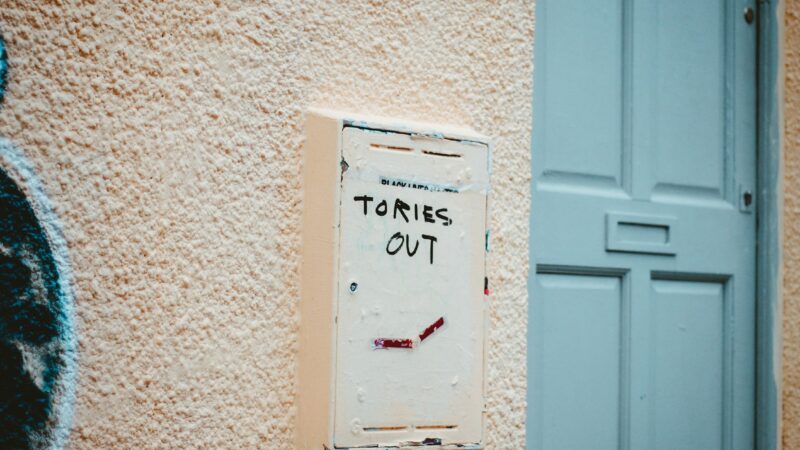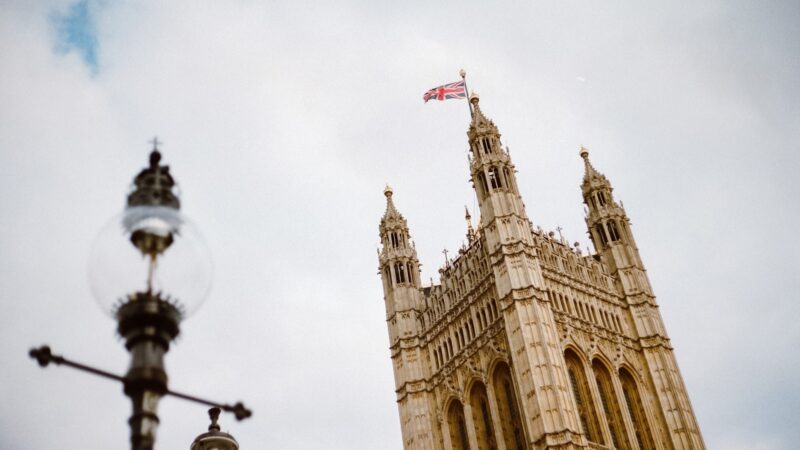The War on Pubs, Part I: Taylor’s Conquest
The war on British pubs is as old as the British pub itself, so much so it can barely be classed as an emerging tendency. The government’s dislike of the pub is a fact of life and measures to undermine its prosperity and role in society are widely disliked but are rarely contextualised in political commentary beyond the Covid pandemic, relatively recent demographic changes, and the last fourteen years of government.
After the end of WW2, Britain seemed to be largely self-sufficient when it came to producing ingredients for beer, something it hadn’t achieved for the best part of a century. Protectionist measures enabled near-autarkic levels of barley production whilst wartime reserves of hops were sold for cheap on the domestic market. Of course, post-war economic pressures made investments more necessary and demanding, whilst imports (especially from Denmark, the Netherlands, and Ireland) were set to become more frequent. Nevertheless, an end to rationing, combined with the implementation of tax cuts in the mid-to-late 50s, one of the few helping hands to pubs since the birth of Modern Britain, which contribute to an increase in beer production and consumption. All things being far from perfect, Britain’s pubs could’ve expected much worse coming out of the most destructive war in history.
Indeed, Britain’s flourishing post-war beer market hadn’t escaped the notice of Edward Plunket Taylor. Famously a breeder of racehorses, coming to be recognised as a major force behind the development of the Canadian horse-racing industry, the tycoon’s family also owned Brading, a brewery in Ottawa founded in 1867. Using the loosely coinciding repeals of prohibition throughout various parts of the US and Canada as a springboard, Taylor merged Brading with another Canadian brewery to form Canadian Breweries in 1930. In pursuit of sheer scale, Taylor consolidated several smaller plants into a handful of larger plants and standardised his line of products, whittling his number of brands down from roughly 100 to six. By 1950, Canadian Breweries controlled 50% of Ontario’s beer market. Having subdued most competition at home, Taylor was well-positioned to turn his focus to foreign conquest.
Being well over 200 years old at this point in history, criticisms of the tie system weren’t new, and they weren’t to vanish in the coming decades, but it did provide an initial barrier to Taylor’s imperial aspirations. As pubs could only sell beer produced by the brewery they were tied to, Taylor realised he’d have to infiltrate Britain’s breweries before he could infiltrate its beer market. Aiming to acquire a 25% stake in every publicly traded brewery in Britain, Taylor sought to gain a foothold in the same way he had come to dominate the Canadian market: through the purchase and merging of smaller and unprofitable breweries. In 1967, Taylor merged Bass Brewery and Charrington United to form Bass Charrington, then the largest brewery in Britain with 19% of the beer market.
Taylor’s aspirations and manifesting success sparked a merging frenzy not seen since the relaxation of beerhouse regulations in the late 19th century and the emergent ‘Beerage’, leading to the rise of ‘The Big Six’, Britain’s six largest brewing companies: Allied Breweries, Bass Charrington, Courage, Scottish and Newcastle, Watney Mann (also known as Grand Metropolitan), and Whitbread.
Whilst Taylor had managed to upend Britain’s brewing market, the tie system continued to incentivise against territorial trespassing between brewers. As such, the mergers occurred largely (albeit far from exclusively) along geographic lines. Allied Breweries and Bass Charrington were more concentrated in the Midlands and the North, both having central breweries in Burton-upon-Trent. Courage originated in Southwark with properties across the South, whilst Watney Mann originated in London with clusters in and around the capital. Fittingly, Scottish and Newcastle were based in Scotland and the Northeast, especially Edinburgh and Newcastle, whilst Whitbread originated in central London, maintaining a sizeable presence in the West End, stretching off into the southwest and much of Wales.
Counterbalancing the instinctual desire to compare The Big Six to feudal barons, their pubs were more clustered than rigidly delineated. Indeed, each brewer was a national entity and desired to expand their control of the overall market. Still, it was the emergence of these large-scale brewers which sparked concerns among small business of a cartelised industry, one in which independent brewers were fighting for an increasingly austere slice of the market.
Initial attempts to curtail the growth of these large brewers lacked momentum. Both with the government and most of the public considering the size of these brewers to be a non-issue. At the very least, it was ‘small beer’ compared to other matters which directly affected pubs and breweries in more gruesome ways. A survey carried out by the Consumers Association showed only 1% of consumers factored in beer prices when it came down to choosing a pub. Simply put, pubs were (and remain to be) more than economic hubs of rational decision-making, but markers of communal identity which provide a sense of place and evoke a sense of loyalty; something to support in a period of inept and lacklustre political leadership.
As for pub owners, many valued The Big Six (and the tie system more generally) as a way of ensuring a steady supply of beer, business, and a livelihood. Far from a barrier to entry, it was seen as the exact opposite, acting as an extension of the quasi-paternalist system which had existed prior to Taylor’s landing on English shores.
Nevertheless, the fears of independent brewers were far from unfounded. By the 1970s, roughly 80% of Britain’s beer supply was controlled by The Big Six, along with roughly 75% of brewer-owned retail, and 85% of ‘loan ties’ – arrangements in which pubs that aren’t directly owned by a Big Six brewer exclusively stock their products and other supplies for discounts and loans. By 1989, the top five best-selling beers had 20% of the total market whilst the top ten had a comfortable 30%.
Also, it became increasingly clear to many pubs that large, cut-throat corporations were not spiritual successors to small, local, historically rooted breweries. The sense of mutual dependency which existed between pubs and the latter was practically non-existent between pubs and the former. Needless to say, an individual pub had more to lose from being untied than any one of The Big Six.
Inflated beer prices were a direct consequence of this arrangement. Between 1979 and 1989, beer prices increased by 15% above the retails’ price index and the tax cuts of the immediate post-war period had long been offset by some of the highest beer duties in Europe. Even if the price of beer was comparatively less important to consumers than the social element of pubs, the financial pressure on customers to buy beer from their local’s tied brewer was far from ideal in a period of stagnating wages and rising inflation.
Pubs which weren’t tied to The Big Six were also routinely shafted by predatory pricing, in which the major brewers would temporarily lower their prices to undercut and destroy independent establishments before increasing their prices to consolidate their financial dominance in particular area. This practice was especially harmful to rural pubs, which were more likely to be independent and less economically secure than urban pubs, courtesy of a continuing trend of rural depopulation.
However, whilst the cost of beer wasn’t a pivotal concern, the wavering quality of beer was a growing source of frustration for pubgoers. Practically impervious to market forces, The Big Six were able to push less-than-appealing products onto the consumer through advertising backed by a steady and plentiful flow of cash. Courtesy of organisations like CAMRA (Campaign for Real Ale), Watney’s Red Barrel became shorthand for the extortionately priced yet wholly unremarkable (if not always terrible) concoctions one could expect from companies perceived as too big to care about the quality of their products.
Overall, the relationship between breweries and pubs was less comparable to ‘aristocratic’ noblesse oblige and more akin to the terror of mobsters and strongmen, whose promise of security wore thin as they threatened pub owners with financial ruin should they defy their heavy-handed demands. In Hobbesian terms, they were demanding obedience from people they were increasingly disinterested in protecting. This state of affairs created a seismic reaction which would change the trajectory of Britain’s pub and brewing industry, albeit not necessarily for the better; a reaction not from the market, but from the state.












